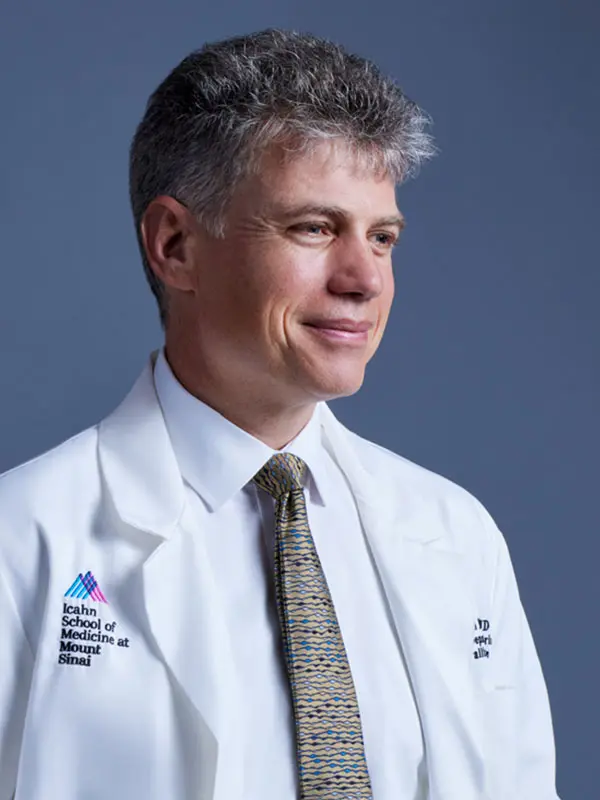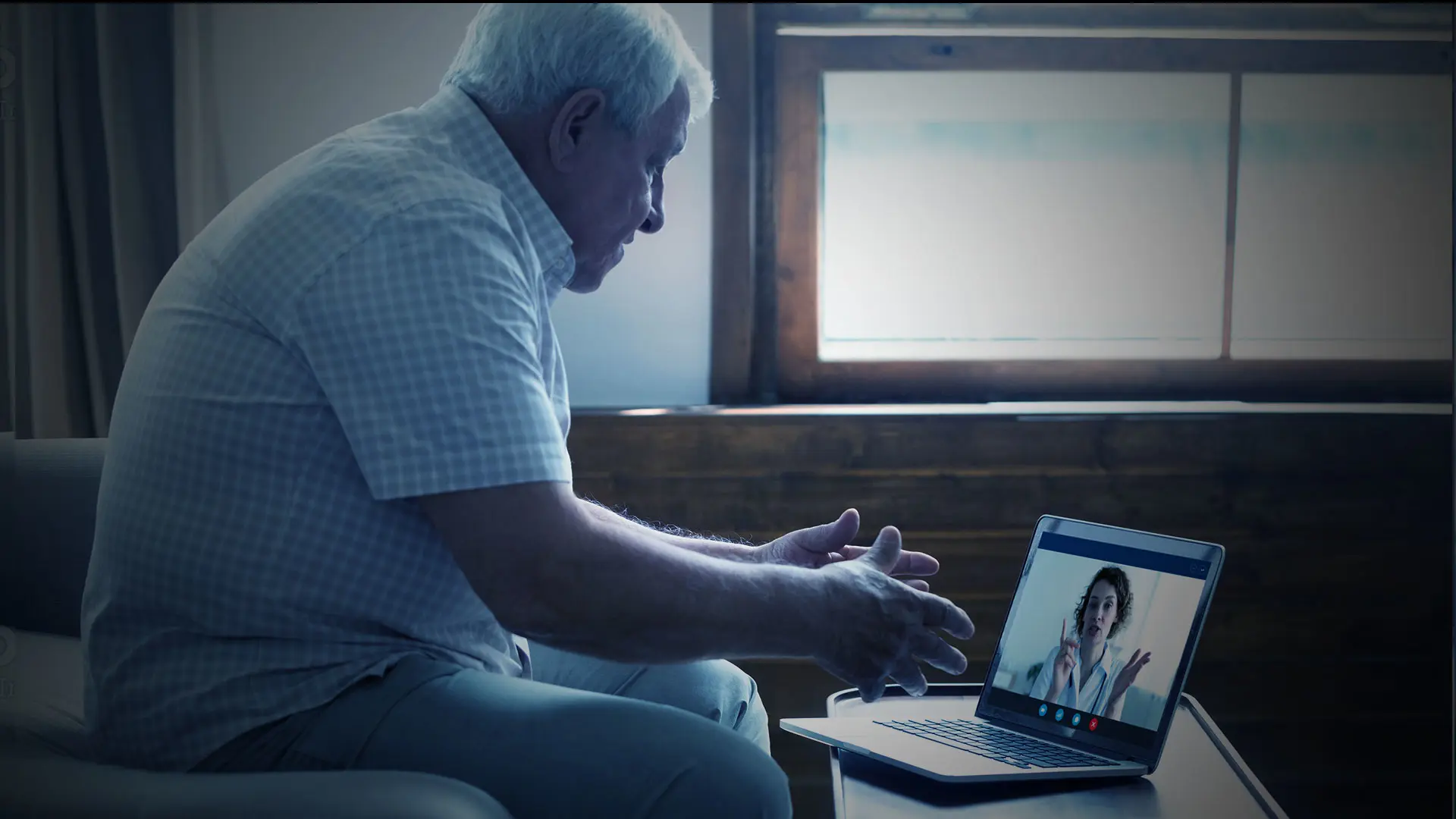The COVID-19 pandemic stretched the clinical skills and resources of the Brookdale Department of Geriatrics and Palliative Medicine at the Icahn School of Medicine at Mount Sinai in ways we never before experienced. But many of the lessons learned are translating into innovative new ways of caring for patients and maximizing our workforce that promise to change how we practice medicine for older adults.
“When you think about how long it typically takes for new models of care to be scaled up and become successful, it’s remarkable how quickly we moved our programs to the bedside of patients,” says R. Sean Morrison, MD, the Ellen and Howard C. Katz Chair of the Brookdale Department of Geriatrics and Palliative Medicine. “Instead of weeks to months, our faculty developed and launched programs in hours to days, and when we noticed barriers, we were able to fix them just as quickly.”
For example, in response to the surge of coronavirus, the Brookdale Department expeditiously created PATCH-24, the Palliative Care Helpline, to rapidly increase the number of patients receiving treatment. Under PATCH-24, a team of physicians and medical students was trained to triage calls from front-line physicians caring for COVID patients and then arrange through a central dispatcher to have palliative care specialists call those doctors right back to consult on symptom management. In many cases, the specialists were also asked to speak directly to the patient and family members via video or phone to help ensure their clinical and personal goals were being met.
PATCH-24 serves to underscore how the Brookdale Department was able to tweak new programs in nearly real-time to correct any deficiencies.
IN THE NEWS: Mount Sinai Launches Palliative Care at Home
IN THE NEWS: Mount Sinai Health System to Launch Palliative Care at Home, Expanding Partnership With Contessa. Click here to read more.
Soon after the program was initiated, for example, calls from emergency department physicians unexpectedly decreased. A quick analysis revealed that doctors on the front-line were so deluged with patients that they couldn’t free up time to call the helpline. A response was quickly implemented: use a new team of embedded palliative care doctors in the emergency department to make the PATCH calls. As a result, the volume of calls was promptly restored, and patients continued to receive the services they needed.
This experience demonstrated how innovative programs could be expanded beyond Mount Sinai.
“One of the lessons we learned from PATCH-24 was that we could provide a unique and innovative model for providing access to palliative care for patients not just locally, but in remote and underserved communities,” says Dr. Morrison. “We believe it can make a difference in regions with smaller hospitals that don’t have enough patients to support their own palliative care programs, as well as in areas that might have a high concentration of patients, but not enough providers.”
The enabling platform for this outreach is telehealth, and here the Brookdale Department is using its experience treating patients virtually during the pandemic to set the stage for a greatly expanded effort in the future.
During the pandemic, video calls with physicians, patients, and families became standard practice, with benefits accruing not just to hospitalized patients but to ambulatory patients as well. Patients could now trade on-site visits to clinics and doctors’ offices for remote discussions and monitoring as a way to reduce personal risk.
“We learned how to do virtual family meetings,” says Dr. Morrison, “and this could be an especially important tool when we’re working with families whose members are spread across the country. Online communications is also continuing in areas like the Mount Sinai at Home program and online training of residents and medical students.”
Another significant initiative was training and embedding residents outside the Brookdale Department in emergency departments and intensive care units across Mount Sinai’s network of hospitals to effectively extend the limited workforce. “We recognized that if we were going to meet the extraordinary demands of COVID-19, we couldn’t do it through the old way of having one doctor on site to care for everybody,” points out Dr. Morrison.
The solution was to give trainees in service lines such as dentistry, psychiatry, dermatology, and radiology that had been slowed by the pandemic an intensive course in communicating with older patients and their families so they could become “palliative care physician extenders,” as Dr. Morrison puts it. Once deployed in the ED or ICU, these physicians were able to update family members on the condition of their loved ones, collect relevant medical histories, and treat delirium, anxiety, and breathing problems, freeing the hands of acute care physicians to manage other patients in need.
The success of the embedded program, which continued even as the daily pressures of COVID-19 eased, can be measured by the fact that it dramatically reduced overcrowding in emergency departments by moving older patients to either hospital beds or their homes.
Despite this array of new programs, Dr. Morrison emphasizes that the Brookdale Department remains committed to further improvements in how it treats older adults in the United States through its widely recognized role as innovator in clinical care, education, and research.
CASE STUDY: Hospitalization at Home
CASE STUDY: The American Hospital Association talks with Linda DeCherrie, MD, and Albert Siu, MD, about our innovative hospitalization at home model. Click here to listen to the podcast.
Featured

R. Sean Morrison, MD
Ellen and Howard C. Katz Chair of the Brookdale Department of Geriatrics and Palliative Medicine
